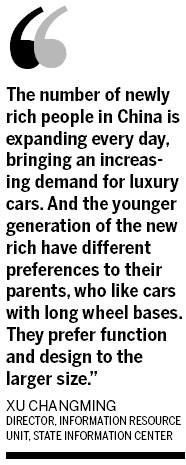### Is a Car Loan a Mortgage? Understanding the Key Differences and Similarities
When it comes to financing vehicles and homes, many people often wonder, **is a car loan a mortgage?** While both types of loans are used to purchase signif……
When it comes to financing vehicles and homes, many people often wonder, **is a car loan a mortgage?** While both types of loans are used to purchase significant assets, they have distinct characteristics that set them apart. In this article, we will delve into the differences and similarities between car loans and mortgages, helping you understand their unique features and how they fit into your financial landscape.
#### What is a Car Loan?
A car loan is a type of personal loan specifically designed for purchasing a vehicle. Typically, these loans are secured, meaning the vehicle itself serves as collateral. If the borrower fails to make the required payments, the lender has the right to repossess the car. Car loans usually come with shorter repayment terms, generally ranging from three to seven years, and interest rates can vary based on the borrower’s credit score and the lender’s policies.
#### What is a Mortgage?
On the other hand, a mortgage is a loan used to buy real estate, such as a house or property. Mortgages are also secured loans, with the property itself serving as collateral. These loans typically have much longer repayment terms, often spanning 15 to 30 years. Mortgages also tend to have lower interest rates compared to car loans, primarily due to the longer repayment period and the value of the asset involved.
#### Key Differences between Car Loans and Mortgages

1. **Purpose of the Loan**: The primary difference between a car loan and a mortgage lies in the purpose for which they are used. A car loan is specifically for purchasing a vehicle, while a mortgage is intended for real estate acquisition.
2. **Loan Terms**: Car loans generally have shorter loan terms compared to mortgages. While car loans can range from three to seven years, mortgages typically last much longer, often between 15 to 30 years.
3. **Interest Rates**: Mortgages usually offer lower interest rates than car loans. This is largely due to the nature of the collateral and the longer time frame associated with mortgages.
4. **Collateral**: Both loans are secured, but the collateral differs. A car loan is secured by the vehicle, whereas a mortgage is secured by the property.
5. **Impact on Credit**: Both types of loans can impact your credit score, but the effects can differ. Mortgages tend to have a more significant impact on your credit history due to the larger amounts involved and the longer repayment periods.

#### Similarities between Car Loans and Mortgages
Despite their differences, car loans and mortgages share some similarities:
1. **Secured Loans**: Both are secured loans, meaning they require collateral, which reduces the lender's risk.
2. **Monthly Payments**: Borrowers must make monthly payments on both types of loans, which typically include principal and interest.
3. **Creditworthiness**: Lenders assess the borrower’s creditworthiness for both car loans and mortgages, determining the interest rate and terms based on the borrower’s credit score and financial history.

4. **Potential for Default**: Failing to make payments on either loan can result in repossession of the vehicle or foreclosure on the property.
#### Conclusion: Is a Car Loan a Mortgage?
In conclusion, the answer to the question, **is a car loan a mortgage?** is a definitive no. While both are secured loans used to finance significant purchases, they serve different purposes, have different terms, and involve different types of collateral. Understanding these differences is crucial for making informed financial decisions. Whether you are considering purchasing a car or a home, knowing the specifics of each loan type will help you navigate your financing options effectively. Always consult with a financial advisor to determine the best course of action for your unique situation.